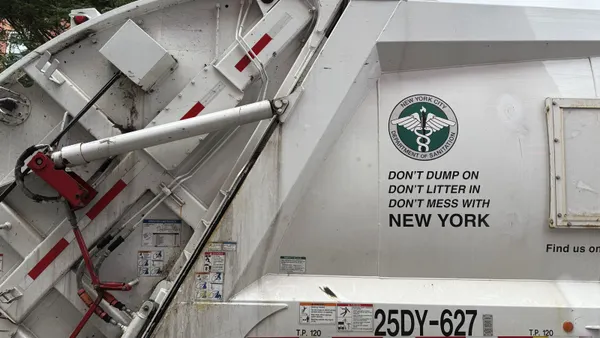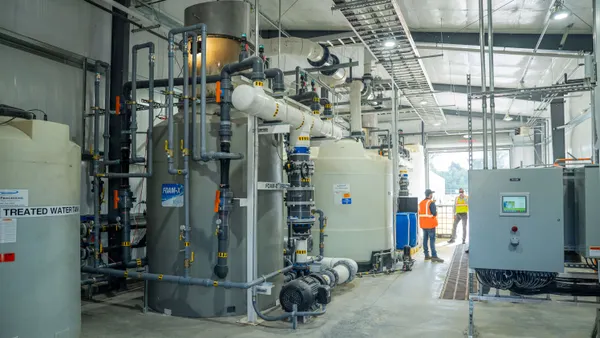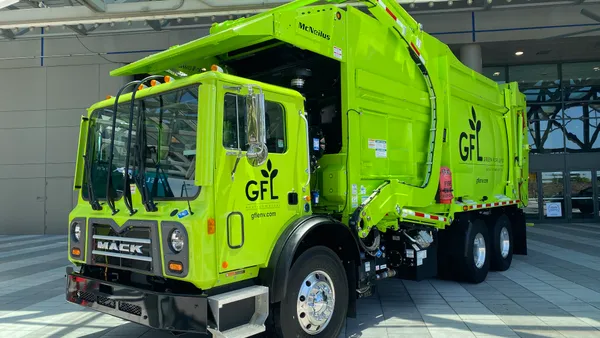Dive Brief:
- Beginning in February, San Angelo, TX residents will pay another 50 cents for trash pickup—a recycling penalty imposed upon them because the city is not meeting its 500-ton per month recycling goal (instead averaging 350 tons). This fee — which according to an early agreement is to be re-evaluated every October and lifted this coming 2016 if San Angelo meets its goal — is on top of a 2.9% annual rate increase for services provided by Republic, as reported in San Angelo Texas News Leader.
- Jeremy Miller, the city's solid waste contract manager, said recycling pickups may also be cut back to alternate weeks, which is fairly standard in most cities. Citizens do have a quarterly bulk pickup for items that don’t fit in their carts, for up to 5 cubic yards.
- Republic won the residential collections contract over Bob Gregory, CEO of Texas Disposal Systems (TDS), who bid a fixed rate around $18 per month, which Mayor Dwain Morrison shot down in the last mayoral election. Morrison was re-elected partly for supporting Republic’s trash contract, according to the Leader.
Dive Insight:
The shaky commodities market generates tension in the highly competitive and costly solid waste management environment, triggering conflicts among competitors, as well as careful thought about best strategy. Gregory has been paying Butts Recycling Center for dropping off recyclables at the facility, prompting him to consider building a transfer station in San Angelo exclusively for recyclables.
As Gregory evaluates this move, his company is in the midst of a lawsuit with Republic who is suing TDS for competing within city limits, where Republic said they have exclusivity.
Gregory questions his competitor’s business practices, using the recycling penalty in San Angelo to make his point. He said the 500 tons a month goal was not realistic. "This was their plan all along. The 50 cents was a hidden surcharge to make the bid lower ... They don’t really want to recycle," said Gregory, the only other bidder for the trash contract.
Miller has a more optimistic and trusting outlook. He believes the city can reach its recycling goal by pumping education and launching campaigns at schools to encourage diversion from landfill through recycling.
Not far away, Austin is counting on that the market has potential too. The city is investing in a [re]-manufacturing hub to draw recycling and reuse manufacturers, hoping to create jobs, stimulate the economy, and encourage green business deals.












